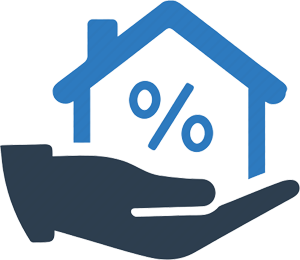Demystifying Hard Money Lenders
Hard money lenders seem to be everywhere these days with deals that seem too good to be true. Where there are plenty of those that prey on new investors, convince them to pay some fee for access to all kinds of money, only to never hear from that so-called lender again. I’ve written how to spot these scammers in a previous blog post. You can read that post HERE.
Hard money lending is a viable business, and there are many hard money lenders that are truly in business to serve real estate investors like us. I want to share with you how a good hard money lender operates, and how you can find the lender that is right for you without doing what I did – get my credit hit with 15 hard inquiries from lenders only to find they were all pretty much the same.
The credit experts say that inquiries have little affect on your credit score, but I can tell you that as these inquiries have fallen off my record, my score has increased by 100 points. That’s a big difference for someone struggling to exceed 700.
The Common Theme with Hard Money Lenders
To understand the hard money lending business, you have to put yourself in their shoes. They are in the business of making money and not losing money. Therefore they look at 2 critical criteria:
- Can we liquidate the asset to retrieve our funds if necessary?
- Can the borrower satisfy their commitment?
These may seem like two very simple issues, but there is a lot of complexity to go into this.
Value of the Asset

Therefore you must expect to bring in a certain amount of cash to share the risk with the hard money lender. The amount will vary on the lender, but my experience is that it’s anywhere from 15% to 35% of the purchase price of the property. The interest rate they charge will reflect the risk accordingly. For example, if you want them to fund 60% of the purchase price, then your interest rate will be much more favorable than if you want them to fund 85% of the purchase price.
Think about it. If they fund 100% of the project, how will they retrieve their funds from the project should you default? Let’s say the property costs $100k, and they finance $100k. They expect their interest payments (as they most likely borrowed these funds) on a regular basis. They need to incur expenses of their cost to the money, plus the cost to try to collect the funds, plus legal fees and time spent on the foreclosure process and then reselling to recoup their investment. A reputable hard money le
Now you may find someone to help you with the rest of the funds, and that is referred to as GAP Funding. But know, that is a much higher risk and you will have to sacrifice much of your profits for this level of funding. You can read more about GAP Funding HERE.
Quality of the Borrower
The quality of the borrower as a project manager/business person is critical. If you’re the kind of person that blows-off your credit cards and other obligations, resulting in a low credit-score, what makes you think someone will trust you with their money?
It’s hard to prove your level of integrity on a loan application, which is why they want a decent credit score, a history of work ethics and honesty. Many hard money lenders want to see that you’ve been successful with money management. If you can’t show this, then look elsewhere for your funds. If the lender says your credit doesn’t matter, they are lying to you and will gladly take that up-front fee.
Let’s talk Financials
Pretty much the standard offering I see these days is 2-4 points, 12-14% interest rate for a 6 month term at a 70% loan to ARV (after repair value). These numbers may fluctuate depending on your level of experience with similar projects and similar loans.
- POINTS = percentage of the total loan amount. For example, let’s say an $80k loan on a $100k purchase price, with a $50k rehab budget, the points would be a percentage of $130k, paid at closing.
- INTEREST = The monthly payment on the total loan amount. Say a $130k loan at 12% interest will be $1300/month.
- REHAB BUDGET = Usually held in escrow, paid out after verification that the project has completed certain milestones, also called DRAWS
When I find an incredible loan rate from a reputable lender, I look into their fine print. One lender I know boasts an awesome 7.99% hard money loan, only to find out they will only fund 50% of the purchase price and none of the rehab cost.
Even the most reputable lenders will not disclose all of their fine print until you get to the closing table. That’s when it’s too late. You’ve already had a hard inquiry to your credit report, paid for an appraisal, gathered your funds for the purchase, lined up contractors and potentially lose your EMD (earnest money deposit) should you back out of the project. You may face this manipulation by the lender, but at this point you’re posed to make a 5 figure profit, so you let these miscellaneous fees slide. This is only one of the ways these guys will get you.
Another is in the extension fees. I’ve even had private lenders admit to me they make most of their money on the extension fees. Real Estate projects rarely come in on-time, and on-budget. There are always surprises during this process, and yet we are often in denial about this at the beginning of a project.
I remember being convinced I could punch out a project in Chicago within 6 months. But unsuspecting freezing days, contractor mishaps, a strike at the LA ship yard, my project was delayed. I did have it under contract to sell prior to the 6 months, and were my gap lender forgave the extension fee, the HML saw my profit (yes, it was a 6 figure profit) and wouldn’t budge from the 6 month deadline.
In Conclusion
Most hard money lenders basically revolve around these criteria. Some may try to differentiate themselves in varying ways, but if they quote something that seems to far off what was discussed here, take a close look at their fine print.










